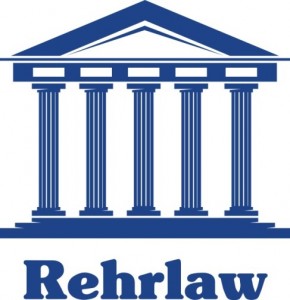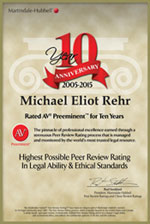A condominium unit owner living “up north” purchased her unit in Miami as a rental investment property. She specifically purchased in her building with the idea of leasing it in the winter tourist season because the only restriction on leasing was that a lease must be a minimum of one month. Soon after her purchase, the Board announced it was proposing an amendment that required leases to be a minimum of one year. If the amendment is passed, is she bound by it?
The short answer is no, as long as she does not consent to the amendment. Subsection 13 of Section 718.110 of the Florida Condominium Act states:
“(13) An amendment prohibiting unit owners from renting their units or altering the duration of the rental term or specifying or limiting the number of times unit owners are entitled to rent their units during a specified period applies only to unit owners who consent to the amendment and unit owners who acquire title to their units after the effective date of that amendment.”
What is very interesting is the genesis of this statute. At the Woodside Village Condominium Association in Clearwater, two individuals each owned a unit for many years as an investment property that they continuously leased. The Declaration of Condominium had a very owner-friendly leasing restriction – in short, units could be leased without prior approval for any period of one year or less and for a period in excess of one year with approval as long as the tenant did not violate the Rules and Regulations of the Association. But then a proposal was made to amend the restriction to limit leasing to no more than 9 months in any 12 month period. The amendment was passed by a vote of 2/3 of the unit owners in accordance with the Declaration, and the two owners challenged the amendment in Court. The trial court judge ruled that the amendment was invalid as to the two owners and the appeals court unanimously affirmed. “Those affected by a declaration of condominium are entitled to rely upon the rights afforded and those prohibited by the declaration. Otherwise, the rights and obligations … could be in a constant state of flux.” … “When an amendment is determined to be discriminatory, arbitrary or oppressive in its application to any particular unit owner, it will be held invalid as to that owner.”
But the Association appealed to the Florida Supreme Court and on January 3, 2002, it handed down its significant ruling. Emphasizing that the Declaration expressly permitted the unit owners to amend it with a favorable vote of two-thirds, that the two owners were on notice that it could be amended, and that restrictions in a Declaration have a strong presumption of validity absent a showing that the restriction is arbitrary, against public policy or in violation of a “fundamental right”, the Supreme Court reversed the appellate Court unanimously. “…Respondents were on notice that the unique form of ownership they acquired when they purchased their units … was subject to change through the amendment process, and that they would be bound by properly adopted amendments”. Thus, the amended rental restriction was upheld and the two unit owners who relied on a liberal leasing policy for many years were now limited to leasing for not more than 9 months in any 12 month period.
Still, that did not end the matter! Property owners all over Florida did not like the high Court’s result. They organized and succeeded in getting the Legislature to change the law to protect the rights of owners similarly situated. Subsection 13 of 718.110 was adopted in 2004. Since then, if an existing unit owner objects to a proposal that impairs leasing rights protected by subsection 13, the owner can make the amendment inapplicable to them merely by voting against it. The decision of the Supreme Court, while still an important one in its reasoning, was greatly minimized in its application by the Legislature that responded to the will of the people. As Yogi Berra said, “it ain’t over ‘til it’s over”.
October 12, 2015.
ShareOCT


